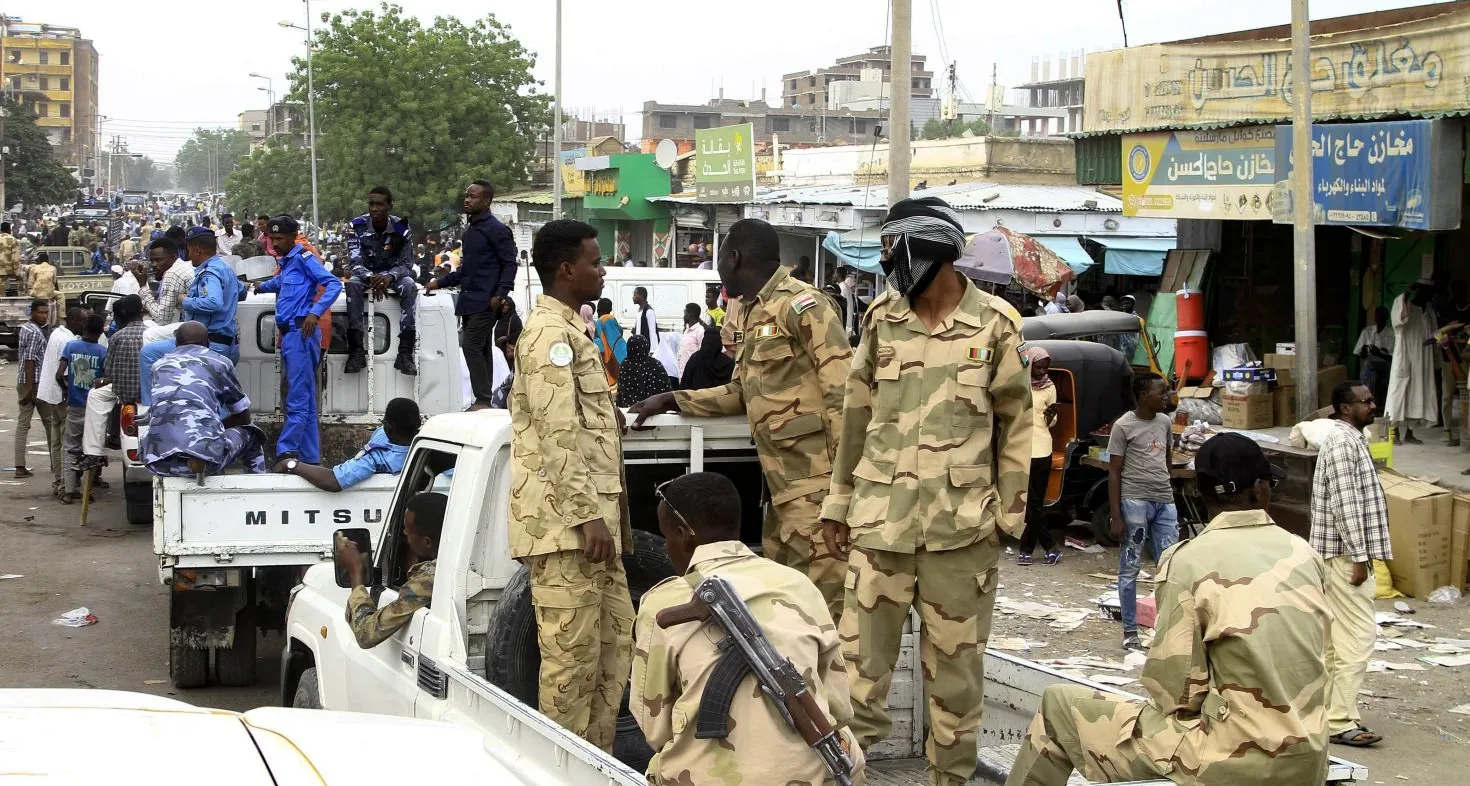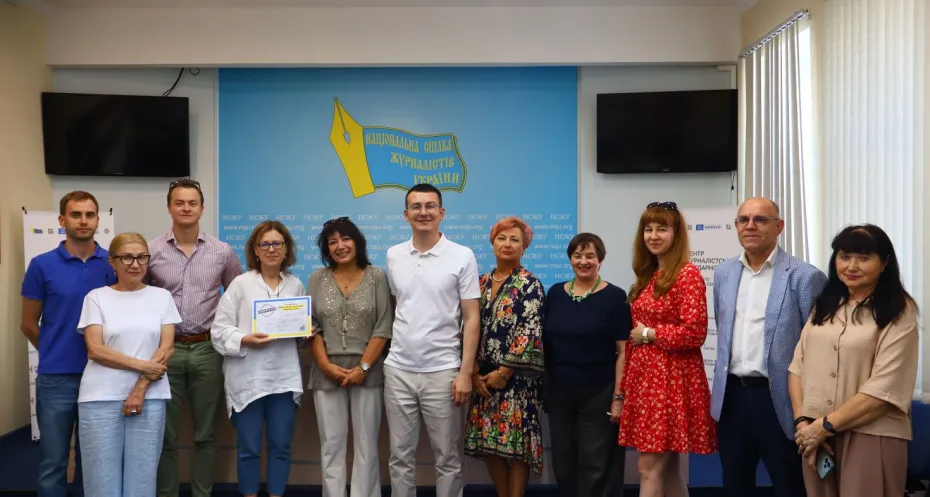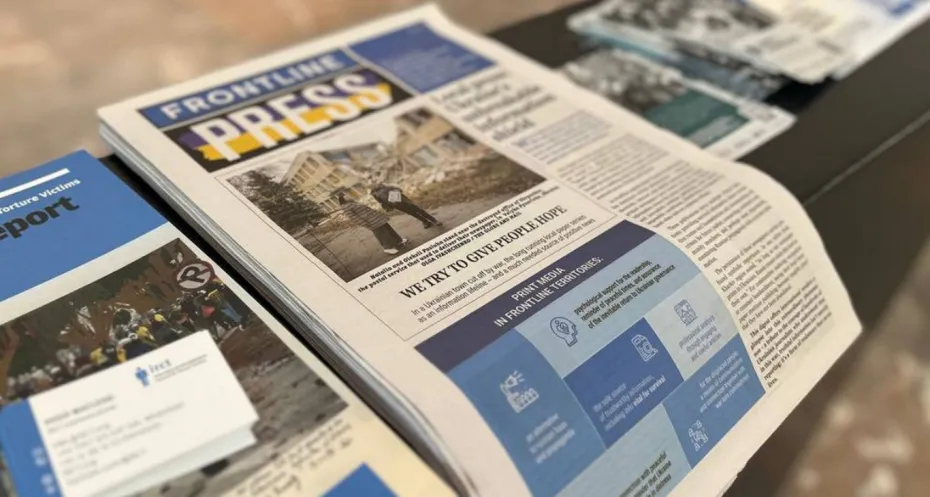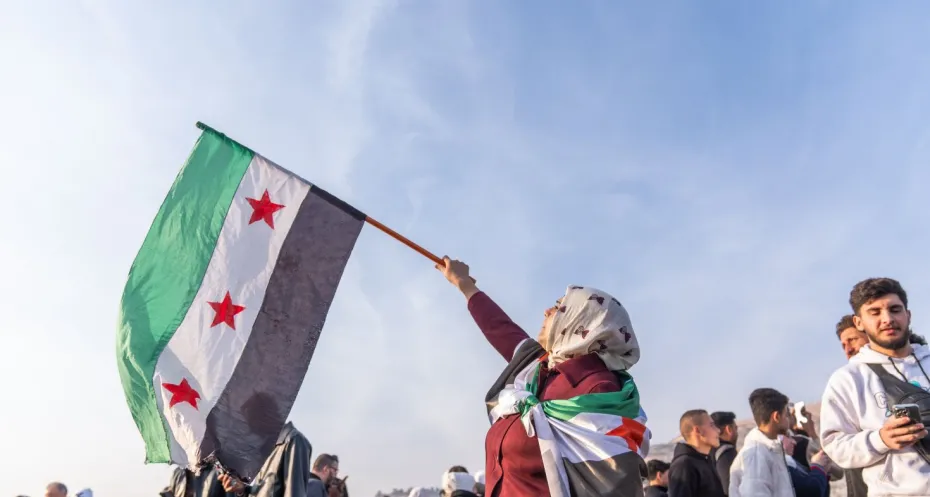
News platform Dabanga: a lifeline for millions in Sudan
A year after the fighting in Sudan re-emerged, the situation has only worsened for the population. It is extremely difficult to report on the conflict and the humanitarian crisis unfolding. We speak to Nigel Ballard, Managing Director at Dabanga – Radio TV Online, about the current situation and the vital role Dabanga plays for the people of Sudan.
At this moment, there is no independent journalism coming from media outlets inside Sudan. Since the fighting between the Sudanese Armed Forces (SAF) and the Rapid Support Forces (RSF) started again on April 15, 2023, life in Sudan has become extremely dangerous for all civilians. Almost 10 million people are displaced, and almost all media workers have left the profession or the country.
“Before the fighting started, within Sudan there were a lot of radio stations and other media. Now there is nothing, everything is destroyed”. Nigel says. “What’s left are social media and WhatsApp as the main sources of information, followed by word of mouth. But the problem is that social media is also used heavily by the fighting parties. The fighters of SAF and RSF are pushing their narrative and spreading disinformation and propaganda. This then causes a lot of division and polarisation, it has split Sudanese society. Therefore, Dabanga’s role is to serve an entire population with independently verified news and information.”
For the millions of Sudanese people who had to flee their homes there are two main priorities: health and safety, as there is a huge humanitarian catastrophe developing. Access to information plays a vital role in this, since information in a crisis situation can be life-saving.
Therefore, the work of Dabanga – Radio TV Online, founded in 2008 with support of Free Press Unlimited and Dutch civil society, is essential. Dabanga broadcasts information from exile via shortwave radio, satellite television, and online platforms, reaching millions of people on a daily basis, informing them on the conflict situation. It is the only Sudanese independent source of information that can still reach all people in Sudan, and even international experts, media and foreign affairs decision makers often turn to Dabanga for verified and up to date information.
How is Dabanga’s operation going?
“Dabanga is the only independent media house with contributors still in Sudan, but they are working under the radar. It’s a network of stringers that send information and footage to Dabanga’s team of editors in The Netherlands.
The work has become even more challenging than after the fighting started last year. We broadcast from outside Sudan through shortwave radio and satellite TV, because this can’t be censored or taken off air. The shortwave broadcast is on for about three hours a day in the mornings and evenings and the TV broadcast’s 24 hours. In Sudan there are regular power cuts, phones and the internet are sometimes not working, and many homes have been destroyed. Whenever social media are up and running, Dabanga publishes content but also uses it to appeal for information. We ask people: where are you? What is going on? We encourage people to use Dabanga as a resource, and as a platform to communicate.”
How are the Sudanese people getting access to reliable information?
“It’s very difficult, there is a big need for radios to be distributed among the people. It's a lot of word of mouth at the moment from people who do have a radio, or access to WhatsApp, who pass on news and information to other people.
We spend a lot of our resources on verification to ensure information is reliable. We explain to the audience why they should trust us and take them through the process of fact-checking. But verifying content is very challenging, it's a race against time. There's so much, and it's so powerful. A rumor can travel faster than we can check it. And the conflicting parties that spread propaganda are well resourced. It’s not just the Sudanese militias, we also notice that information can originate from outside Sudan possibly from actors with economic or political interests in Sudan. There are a lot of things that remain unseen.”
What kind of content do you cover?
“Internationally, the war in Sudan gets little media attention, in part because the focus is on Ukraine and Gaza. But there are things going on, like peace efforts initiated by Sudanese organisations outside the country.
We try and cover topics that are not being covered by other media and from the perspective of those affected. There are stories on human rights abuses, like a recent report of a village that has been attacked, including pictures and witness testimonies. Dabanga also tries to talk to the warring parties to hold them to account for their actions in continuing the fighting.
We see that international efforts to stop this war have been ineffective, and there is not enough humanitarian aid coming through. There was some humanitarian aid coming in through Chad, which is not the traditional route, and then the information minister of the Sudan Armed Forces government stopped it. Dabanga covered this and the story attracted international attention. This is a good example of Dabanga highlighting an issue and pressure being put on the Sudanese government, after which the initial call to stop the aid was retracted. However, Dabanga is really small. That's the problem. There's too much work for the team at the moment.”
How do you view the lack of attention for this crisis? Is it something that Dabanga tries to change?
“To get the attention of the world you need really good content in terms of pictures and audio, and that's quite difficult in Sudan. And with crisis reporting, you get into this cycle where you're always raising the stakes. What story of human rights abuses can shock even more than the one before? Independent Sudanese media need support to tell the story of what is happening and stop this being the forgotten war. We want to convey the message of don't forget Sudan and don't forget media support. In terms of support that is needed right now, we need ways to get money and equipment into the country, and restore access to information within Sudan. How do we rebuild that infrastructure? How do we stay connected with these people? How do we support journalists outside the country who are also trying to report on the events? Innovative technical and financial means are needed so we can keep telling the story. Because we know that if you keep telling the story, we keep the attention.”
Sudan Media Forum: #StandWithSudan
In the meantime Dabanga and over 20 other media outlets have agreed to launch a campaign "Stand with Sudan" to address the lack of urgency by the international community. Free Press Unlimited gladly supports this initiative. It inspires to raise awareness of the grave humanitarian situation which potentially threatens famine and disease outbreak of millions of citizens.
The group has launched the Sudan Media Forum, a coalition of Sudanese independent journalists and media organisations, including Dabanga. The campaign #StandWithSudan is timed to coincide with the first anniversary of the outbreak of the war.
The Sudan Media Forum demands an immediate ceasefire from all warring parties. They urge unrestricted passage for humanitarian aid and the establishment of safe corridors to deliver food and vital supplies to suffering people in every corner of Sudan – cities, villages, and rural areas alike.
Read more on Dabanga's website




